First Nursing Integrative Health Students Earn Degrees
The Bachelor of Science in Nursing Integrative Health celebrated its first graduation last month.
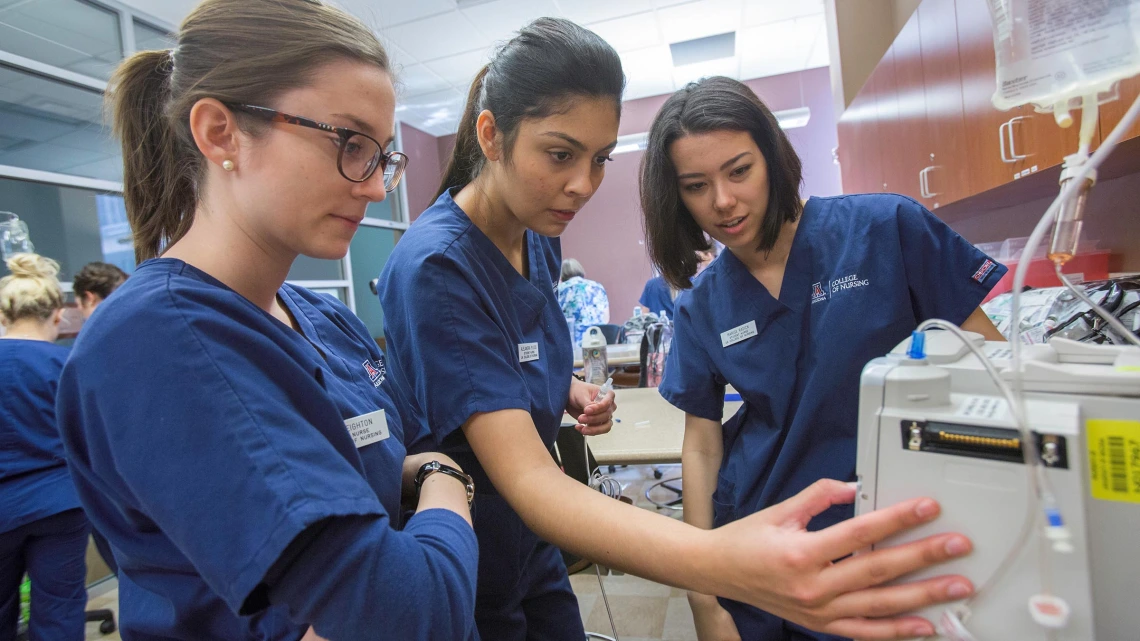
BSN students learn about medical devices in a classroom environment in 2018.
Overcoming multiple challenges brought on by the COVID-19 pandemic, the University of Arizona College of Nursing celebrated the graduation of its inaugural cohort of Bachelor of Science in Nursing Integrative Health (BSN-IH) students last month.
The Gilbert, Ariz.-based program is devoted to blending conventional health care with complementary approaches to wellbeing of the mind, body and spirit, reflecting the University of Arizona Health Sciences’ goal of preparing students to build and lead the future of health care.
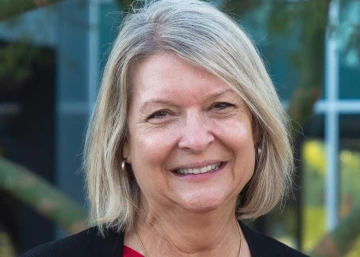
Betty Parisek , EdD, MSN, RN
As the first 24 graduates prepare to enter the workforce, the BSN-IH program is flourishing. Sixty-four students enrolled in the most recent cohort, with a total enrollment of 216 expected by year three.
The program’s director, Betty Parisek, EdD, MSN, RN, credits the City of Gilbert’s support, the program’s unique holistic focus and the opportunity for students to engage in extensive community outreach as factors in its success.
The four-semester, upper-division BSN-IH program differs from the conventional BSN pathway in that it focuses on integrative health, and wellbeing assessment and promotion. Integrative health offers an alternative to traditional biomedical and pharmacological options, and promotes a healing-oriented, whole-person approach to health care. Health conditions are clinically treated through a variety of methods, including lifestyle enhancement, nutrition and appropriate biomedical therapies.
‘Just the right balance’
One of the program’s first graduates is Shynnah Tacheene, a member of the Navajo Nation who grew up in Pinon, Ariz. She has a job lined up at a medical surgical unit run by Indian Health Services.
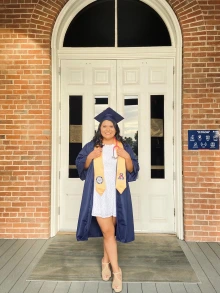
Shynnah Amber Tacheene, BSN-IH Fall 2020 Cohort
Tacheene said she chose a career in nursing because of the need for health care professionals in her community. She was drawn to the integrative health focus of the BSN-IH program.
“I loved every moment, even with the challenges of COVID,” she said. “It combines conventional and holistic approaches to nursing, and the curriculum was just the right balance of each. I do feel that it has prepared me for the nursing profession, and I am excited to extend my knowledge on integrative health to the reservation.”
Dr. Parisek said the program is unique because it encourages students to embrace the art of nursing alongside technical skills.
“Students typically focus on the tasks that they’re learning, but the integrative health focus helps them remember the principles of integrative nursing,” she said.
Components of self-care are woven throughout the curriculum, including many complementary therapies that students can use not only with their patients, but also for themselves.
Partnering with other community services
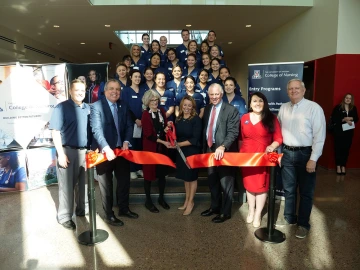
Gilbert campus ribbon cutting. Front row: Senior Vice President for Health Sciences Michael Dake, MD; College of Nursing Dean Ki Moore, PhD, RN, FAAN; Former Gilbert Mayor Jenn Daniels; UArizona President Robert C, Robbins, MD. Back rows: guests including the first BSN-IH cohort.
"Forming long-term partnerships with higher education institutions has always been a priority for us, and we were thrilled when the University of Arizona chose Gilbert to expand their BSN program," said Gilbert Mayor Scott Anderson. "Now that the demand for those in the health care industry has become more critical, we're grateful that students trained right here in Gilbert from the University of Arizona Health Sciences will be able to assist their communities when they are needed the most."
Robust community partnerships in Gilbert and the surrounding communities are a cornerstone of the program.
“We feel we have a responsibility to the communities we serve,” Dr. Parisek said. “We want to be present not only as UArizona Nursing, but also as part of our community.”
Last year, students had an opportunity to work with the Lauren’s Institute for Education, a school for developmentally disabled children and adults. BSN-IH students also completed clinical hours and provided health screenings and education for Mercy Housing, the nation’s largest affordable housing advocacy organization.
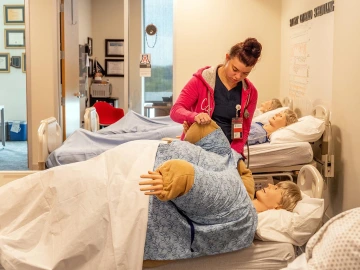
BSN-IH student in class at Gilbert campus, Nov. 2019.
Plans are underway for students to provide health care outreach to Hushabye Nursery, which provides care for babies born to mothers with addictions, as well as the local Boys and Girls Clubs after school program.
Many of those partnerships have been put on hold during the pandemic, but with the help of technological innovations provided by a recent gift from Andrew and Kristen Braccia, the BSN-IH program has prospered and grown with virtual classes this year.
“We determined very far back in spring that our students needed a lot of high-touch connections with faculty and with their peers,” Dr. Parisek said. “As we return to in-person activities, those connections with our students will only grow stronger. We will continue to be successful because our faculty live and breathe that philosophy, and I think it shows in our level of student attainment.”

